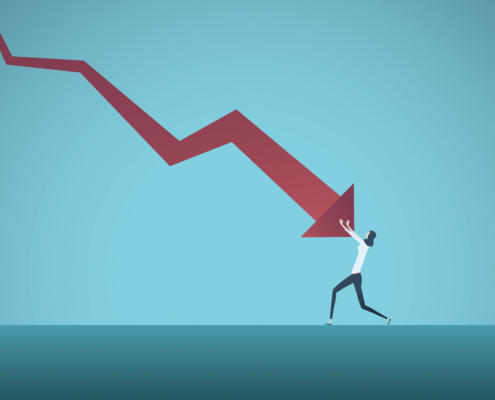How to recession proof your emergency fund
Recession Proofing Your Emergency Funds
Your emergency funds were meant to protect you in testing times but that does not mean that you shouldn’t protect it either. Savings should only be used when absolutely necessary. Otherwise, you would end up saving for nothing.
That said, the best thing to do is to always live within or even below your means. If you have a tendency to splurge on stuff you do not need there is a big tendency that it would be hard for you to adjust when a recession hits.
Yes, there is no guarantee that a recession will directly affect you but you can never tell until it comes. As our forefathers have always said, ‘it is better to be safe than sorry’.
To get a better grasp as to why you should always prepare yourself for this occurrence, let us understand how a recession could possibly affect you.
The Recession
A recession is classified as the economic slowdown of a country for at least six months. Within this period many people lose their jobs, businesses earn less, income decreases and the overall circulation of money is slow.
As a result people are either out of work or paid less and prices of even the most basic commodities go up. Even if you have an emergency fund, there is no guarantee that you are set out to survive the recession seeing as there is not telling as to how long it would last.
With that in mind, it would be better to recession proof your finances before that time even comes. How to do it?
Well, here are 8 ways to Recession proof your funds and your life.
Pay down Debt
The last thing that you want is to be caught up in debt during a recession. Paying off any loans you have as soon as possible will help give you peace of mind that your emergency funds will only be set aside for difficult times.
Spend and Save Smart
If you are already following the 50/30/20 rule, you’ve got yourself set when it comes to your emergency savings. However, it should not end there. While you do have 50% of your income to spend on your needs, 30% on your wants and 20% on your savings, you could always do more.
To do so, you have to list down all your expenses. Once you have identified all the things that you believe you need to pay for or buy for the month, categorize them into needs, wants and urgency. As a rule, urgent expenses should be taken care of immediately such as rent, bills and other responsibilities. Food and drinks which fall under needs can be further broken down into necessary and unnecessary needs.
Snacks, sugary and carbonated drinks may satisfy your cravings but they really aren’t food that you need. Rethink what you want and need to keep so you stay within your budget plan. Should you have a little extra left, rather than spending it on your wants, you could add this amount to your current savings.
Find a Side Hustle
Working on the sideline helps you increase your income. This translates to bigger savings and a second source of funds. Should a recession hit, if you lose one stream of income, you still have another. And if you end up losing both, you still have twice as much savings as you’d have if you only had one source.
Keep Savings in Cash
While investments could grow your funds, these aren’t necessary. There is even a risk that these may decrease in value during a recession. If you really want to see your money grow, set aside only a portion of your income for investments. Once you’ve yielded profit, set aside a portion of that for your savings.
Doing this makes sure that you are able to earn back the same amount that you set for investment for your savings. Following this, you can potentially grow your savings while investing.
If that’s too much work, you could keep your money in a high-yield savings account instead.
Stay Insured
Your emergency savings was meant for emergencies but that doesn’t mean you shouldn’t secure the least amount of payments possible. Health-related issues could shave off a good amount of your emergency savings.
While you may be robust and healthy right now, there’s no telling when you’ll be faced with such a need. A good health insurance coverage can help protect you from zeroing out your savings when the situation arises.
Educate yourself and Learn New Skills
Learning never stops. The more skills you have in your arsenal the bigger chances of you getting into employment even amidst a recession. Having just a trick or two up yourself should be enough for you to open more doors of opportunity.
Never Be Behind
Your bills are just as important as your debt. Even if your landlord is willing to give you a grace period with your monthly payment, staying on track with your rent guarantees you a place to live and a good relationship with your leaser.
If the need comes, you may be given a chance to hold off on payments seeing that you are consistent with payments.
Make Your Financial Plans Flexible
You do have to follow through with your financial goals but that doesn’t mean you can’t make adjustments. When a recession hits, you can’t keep saving or earning as much money as you do right now so before it hits, you have to prepare yourself mentally.
While planning and acting it out are two different things, when you constantly think about it, there is a high probability that you would make it a habit of remembering what to do when it comes up. The reason why most people are in shock of a recession is because they fail to plan out what they’re going to do. Without proper planning people end up panic buying or overspending.
In the end, it all boils down to how prepared you are mentally and financially. A recession will always be a shock to anybody caught in the midst of it. Those who are ready to face it however, have the means and mettle to pull through. So keep yourself equipped with the skills and financial capacity while you can.





Leave a Reply
Want to join the discussion?Feel free to contribute!